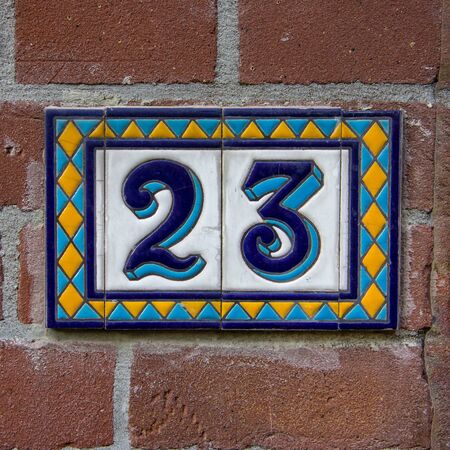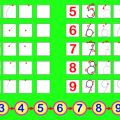1. Introduction: Bridging Eastern Wisdom and British Curiosity
Across the rolling hills and storied cities of the UK, there’s a quiet yet growing fascination with wisdom that transcends borders. The I Ching, or Book of Changes, is one such treasure—an ancient Chinese text whose roots stretch back over three millennia. But why does this venerable oracle capture the imagination of modern Britons? Perhaps it’s the spirit of curiosity—a trait as British as afternoon tea—that draws seekers to explore new realms of meaning beyond the familiar. Or perhaps it’s a collective yearning for connection, something that resonates just as much in bustling London cafés as it does in tranquil Cotswold gardens. In this journey through the heart of the I Ching, we’ll unravel its origins and illuminate why its timeless principles speak so eloquently to those in the UK searching for insight, balance, and purpose amid the rhythms of contemporary life.
2. Foundational Concepts of I Ching: Change, Duality, and Flow
If you were to wander through a misty English morning, perhaps along the rolling hills of the Cotswolds or by the banks of the River Thames, you might notice how the landscape shifts with the seasons—sometimes gentle, sometimes abrupt. This constant transformation captures the heart of the I Ching’s philosophy: change is not just inevitable, but essential. In British culture, where weather and mood often mingle in unpredictable ways, this principle is strikingly familiar.
The I Ching teaches that life unfolds through dualities—most famously embodied by yin and yang. Imagine a classic British day: a downpour followed by radiant sunshine, much like the way joy and sorrow weave through our lives. This interplay is not conflict but complementarity; each gives meaning to the other, echoing the harmony found in a cup of tea enjoyed during a thunderstorm.
| Core Concept | I Ching Principle | British Parallel |
|---|---|---|
| Change | Everything is in flux; nothing remains static. | The ever-shifting British weather; adapting plans for an outdoor picnic. |
| Duality (Yin & Yang) | Opposing forces are interconnected and give rise to each other. | Day meets night; tradition meets innovation in British society. |
| Flow | Following the natural movement of events, not forcing outcomes. | Letting conversations unfold over a pub lunch; embracing unexpected moments. |
The I Ching expresses these ideas through hexagrams: patterns of six lines that represent stages and shifts in life’s journey. It’s rather like watching a village cricket match—the game changes with every ball bowled, yet there’s a deeper rhythm and meaning beneath each play. These hexagrams remind us that while we may not control every turn in our story, we can learn to move gracefully with its flow—just as Britons have always done, weathering storms and savouring sunlight alike.
![]()
3. The Art of Divination: I Ching’s Methods Seen Through a UK Lens
To truly understand the I Ching’s core principles, it is essential to appreciate the very art of divination—an ancient practice that, curiously, finds echoes across both Eastern and British cultures. In China, the traditional rituals of coin- and stick-casting are not merely fortune-telling; they are sacred acts of consulting the flow of life itself, drawing on intuition and a reverence for unseen guidance. These methods, steeped in ritual and symbolism, invite seekers to interact with fate by casting coins or yarrow sticks, patiently interpreting the resulting hexagrams as signposts from the universe.
When viewed through a UK cultural lens, these practices resonate with time-honoured British traditions of seeking wisdom in everyday moments. Consider the cherished ritual of reading tea leaves—a quiet pause after afternoon tea where friends gather, swirling dregs at the bottom of a cup and searching for shapes that might reveal their fortunes. Or reflect on the familiar scene of sitting by a crackling hearth, listening intently as an elder shares stories and advice shaped by years of experience—guidance passed down like whispered spells.
Both worlds, East and West, share an intuitive sense that answers may be found in patterns—whether in nature, objects, or stories. The act of divination, whether through I Ching’s structured hexagrams or the freeform artistry of tasseography, becomes a mirror reflecting our own hopes and uncertainties. It invites us to surrender logic momentarily and trust in symbols—a gesture deeply woven into the British psyche through folklore, superstition, and folk wisdom.
In this light, using I Ching within a UK context becomes less about appropriating an exotic custom and more about rekindling an ancestral memory: that universal longing to seek meaning beyond what meets the eye. It is here that spirituality blends with story—where tossing coins or reading leaves becomes not just prediction but participation in life’s unfolding narrative.
4. Values and Ethics: Harmony, Balance, and British Stoicism
The I Ching, with its deep reverence for harmony and appropriate action, finds an unexpected kinship with the British spirit. At its heart, the I Ching teaches that life is a dance of opposites—yin and yang in constant flux—calling us to respond not with force but with gentle adaptation. This echoes the longstanding British value of “keeping a stiff upper lip”: facing uncertainty or adversity not by resisting, but by embracing resilience and understatement.
The Echo of Harmony in British Culture
In both the I Ching and British tradition, harmony is not about suppressing difference, but about navigating change with grace. The British weather is famously unpredictable; so too is life, as depicted in the ancient hexagrams. The wisdom lies in reading the signs—be it shifting clouds or shifting fortunes—and adapting accordingly.
Resilience and Understatement: Parallels in Practice
| I Ching Principle | British Cultural Value | Manifestation in Daily Life |
|---|---|---|
| Balance between opposites (Yin/Yang) | Stoicism and emotional reserve | Responding calmly to setbacks without dramatics |
| Appropriate action at the right time | Sensible pragmatism | Waiting for the “right moment” to act rather than rushing in |
| Adaptation to change | Flexibility and wit | Finding creative solutions amidst unpredictability (e.g., the classic “make do and mend” approach) |
| Pursuit of harmony within conflict | Diplomacy and compromise | Resolving disputes through conversation rather than confrontation |
A Shared Ethic of Subtle Strength
Both the I Ching and British values elevate subtlety over showiness. Just as a wise person consults the oracle to discern when to yield or persist, so too does the British sensibility favour measured response over impulsive reaction. There is quiet power in restraint—a belief that true strength lies not in dominating circumstances but in flowing with them. In blending these perspectives, we see how ancient Chinese wisdom can illuminate and deepen our understanding of UK cultural ethics, reminding us that balance and harmony are universal guides on the winding path of life.
5. Modern British Encounters: I Ching’s Relevance Today
Walk along the winding lanes of contemporary Britain, and you’ll find the ancient wisdom of I Ching quietly echoing in unexpected corners. In recent years, the Book of Changes has found itself at home in modern British spirituality—woven seamlessly between sips of tea, within thoughtful book club circles, and during moments of pause that punctuate the relentless pace of city life. For many, I Ching offers more than cryptic hexagrams; it serves as a mirror reflecting inner truths and a gentle guide in times of uncertainty.
Consider the story of a London-based book club formed not by literature alone, but by curiosity about Eastern philosophy. Each month, its members—artists, teachers, retirees—gather in a candle-lit room to draw hexagrams together. As they interpret the imagery through both traditional translations and their own intuition, lively debate flows alongside laughter. Here, I Ching becomes both oracle and bridge: linking generations, backgrounds, and perspectives in a uniquely British tapestry of voices.
Elsewhere, in quieter moments—perhaps on a misty morning in the Lake District or amid the urban hum outside a Bristol café—the I Ching is often turned to as a tool for mindful reflection. A young professional, caught between career crossroads, consults its pages before her commute; an elderly gentleman reflects on past choices with its guidance as he strolls through Hyde Park. These daily encounters are not grand rituals but small acts of seeking clarity—a gentle pause for inner alignment amidst outward busyness.
This subtle integration of I Ching into everyday practice speaks to its adaptability and enduring relevance. In meditation workshops from Brighton to Edinburgh, facilitators draw upon its core principles—balance, flow, acceptance of change—to encourage participants to trust both intuition and process. The spiritual landscape of modern Britain is marked by diversity and openness; here, the I Ching sits comfortably alongside mindfulness practices, yoga sessions, and even Sunday sermons.
What emerges is a uniquely British relationship with this ancient text: one that honours tradition yet welcomes reinterpretation. Through shared stories and quiet personal moments alike, I Ching continues to inspire seekers across the UK to explore their own cycles of change—with curiosity, humility, and an ever-renewed sense of wonder.
6. Contrasts and Connections: Navigating Mysticism and Pragmatism
If you stroll through the winding streets of Oxford or sip tea in a bustling London café, you’ll likely notice an enduring trait of British culture: a steady balance between curiosity and caution, mysticism and pragmatism. When the ancient wisdom of the I Ching encounters this distinctive mindset, a fascinating dance begins—one where intuition and practicality meet at the same table.
The I Ching’s Mystical Roots
The I Ching emerges from a tradition steeped in symbolism, synchronicity, and unseen energies. Its hexagrams and poetic imagery invite seekers to peer beyond the surface of daily life, encouraging a kind of spiritual listening. For centuries, its wisdom has guided individuals through uncertainty by connecting them with deeper patterns at play in the universe.
The British Way: Grounded Curiosity
Contrast this with the British approach, which often prizes wit, measured risk-taking, and a healthy dose of scepticism. There is an appreciation for mystery here—but it is coupled with practical exploration. Rather than accepting mystical insights at face value, the UK’s cultural temperament tends to ask, “How might this work in practice?” or “What can this teach me about my real-life choices?”
Finding Common Ground
This respectful curiosity becomes a bridge. The British are no strangers to rituals—from Sunday roasts to Remembrance Day poppies—yet these traditions are cherished as much for their meaning as their function. Similarly, engaging with the I Ching need not be an act of blind faith; it becomes an invitation to experiment, reflect, and integrate ancient perspectives into modern dilemmas.
Celebrating Exploration Over Dogma
Ultimately, navigating the crossroads between I Ching mysticism and British pragmatism is less about resolving differences and more about celebrating exploration. Here lies an opportunity: to honour the unknown with an open mind while applying insights in ways that genuinely enrich daily living. It’s about lighting a candle in the dark—not because we must see everything clearly, but because even a little light can guide us home.
7. Conclusion: Towards a Shared Wisdom
The journey into the I Ching, viewed through the lens of British cultural experience, reveals far more than an ancient Chinese text; it offers a living, breathing source of insight that transcends both time and geography. As we have explored its core principles—change, balance, and interconnectedness—we find echoes that resonate with our own traditions of folklore, storytelling, and intuitive reflection. The I Ching invites each reader in the UK to become not just a passive recipient of wisdom, but an active participant in its unfolding narrative.
Engaging with the I Ching is not about adopting foreign beliefs wholesale, but about entering into a dialogue—a conversation between East and West, tradition and modernity, logic and intuition. For British readers, this opens up rich possibilities: from personal introspection using the hexagrams as mirrors for our own dilemmas, to communal exploration where groups gather for shared readings and discussion. In this space of curiosity and respect, we honour both the text’s origins and our own unique perspectives.
Let us remember that the I Ching’s greatest gift lies not in providing fixed answers, but in encouraging us to embrace uncertainty and trust our inner wisdom. Each consultation becomes a story in itself—a moment where intuition meets synchronicity, and new meaning arises. By weaving these experiences into our daily lives, we participate in a tradition that has evolved for millennia, adding our voices to its ongoing story.
So as we close this reflection, may British readers feel inspired to continue their dialogue with the I Ching—not only as a tool for divination, but as a companion on the path of self-discovery. In doing so, we move towards a shared wisdom that honours diversity while celebrating our common search for understanding. The invitation stands open: step forward with an open heart and let the journey reveal what only you can discover.


